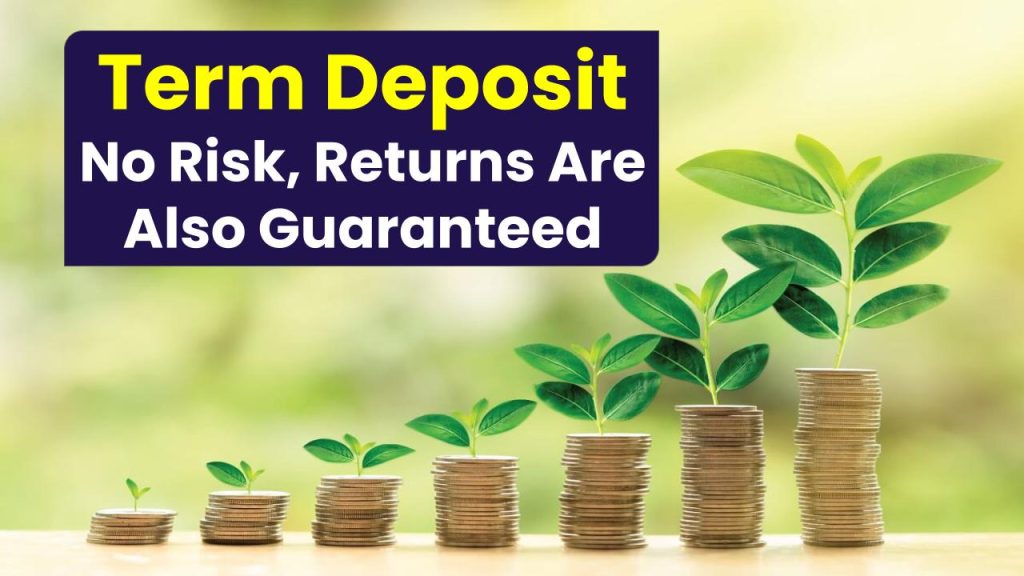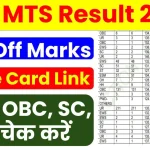
If you’re looking for a safe place to park your money while earning steady returns, a term deposit—commonly known as a fixed deposit (FD) in India—could be your best bet. It’s a no-fuss investment that guarantees your money stays secure and grows over time. And the best part? No sleepless nights worrying about stock market crashes or risky returns.
In today’s unpredictable financial world, the appeal of a low-risk investment with guaranteed returns cannot be overstated. Whether you’re a young saver, a working professional, or a retired senior citizen, understanding the benefits of term deposits can help you make smarter decisions with your money.
Benefits of Term Deposit
| Feature | Details |
|---|---|
| Investment Safety | 100% capital protection; no market-related risks |
| Returns | Guaranteed returns ranging from 6.5% to 7.75% p.a., depending on bank & tenure |
| Lock-in Period | From 7 days to 10 years (flexible options available) |
| Tax Benefit | Tax-saving FDs offer deductions under Section 80C (up to ₹1.5 lakh) |
| Loan Against FD | Borrow up to 90% of FD amount from most banks |
| Senior Citizen Benefit | Additional 0.25% to 0.75% interest for seniors |
A term deposit is one of the most reliable and low-risk investment tools in India today. Whether you want to earn predictable returns, save tax, or build financial discipline, FDs offer a secure path. While they may not give sky-high returns, they give something even more valuable—peace of mind.
By understanding the features, comparing interest rates, and aligning them with your financial goals, you can make the most of this underrated yet powerful investment tool.
What is a Term Deposit?
A term deposit is a type of investment offered by banks and post offices where you deposit a sum of money for a fixed period, known as the tenure, at a predetermined interest rate. At the end of this term, you get your original amount plus interest.
Unlike mutual funds or stocks, term deposits are not market-linked, meaning they are risk-free and ideal for cautious investors.
see also: Post Office Scheme: A Boon for Married People
Why Are Term Deposits Considered Safe?
Term deposits are one of the safest investment tools because:
- They are insured by DICGC (Deposit Insurance and Credit Guarantee Corporation) for up to ₹5 lakh per depositor per bank.
- The interest rate is fixed at the time of deposit, offering immunity from market fluctuations.
- There’s no principal loss, unless you withdraw prematurely (which may attract a small penalty).
So, whether you’re saving for a future expense or just want to earn more than a regular savings account, term deposits offer peace of mind.
7 Major Benefits of Term Deposits
1. Guaranteed Returns – No Guesswork Needed
The interest rate on a term deposit is locked in when you invest. Whether the market goes up or down, your returns are fixed.
For example, if you invest ₹1,00,000 for 5 years at 7.5%, you’ll earn around ₹44,000 in interest. That’s ₹1,44,000 at maturity—without lifting a finger.
2. Flexible Tenures
You can choose a tenure as short as 7 days or as long as 10 years. This flexibility makes it suitable for both short-term goals (like travel) and long-term savings (like a child’s education).
3. Loan Facility Against Your FD
Need urgent money but don’t want to break your FD? Most banks allow you to take a loan or overdraft up to 90% of your FD value. You keep earning interest and get liquidity too!
4. Extra Interest for Senior Citizens
Banks often provide additional interest—up to 0.75% more—for senior citizens. For example, if regular FDs offer 7%, seniors may get 7.75%.
This makes it an excellent income-generating tool for retirees.
5. Tax-Saving Options
Certain FDs, especially 5-year tax-saving fixed deposits, qualify for deductions under Section 80C of the Income Tax Act. You can claim up to ₹1.5 lakh a year, reducing your taxable income.
Note: Interest earned is still taxable under “Income from Other Sources.”
6. Safe for Every Age Group
Term deposits are simple enough for a beginner and stable enough for a senior citizen. No technical knowledge or market experience is needed.
7. Start Small, Grow Big
Most banks let you start with as little as ₹1,000, making it ideal even for students or low-income earners looking to build savings gradually.
Interest Rates Comparison (as of March 2025)
| Bank/Post Office | General Public | Senior Citizens |
|---|---|---|
| SBI | 6.50% – 7.00% | 7.00% – 7.50% |
| HDFC Bank | 6.60% – 7.10% | 7.10% – 7.60% |
| ICICI Bank | 6.50% – 7.10% | 7.00% – 7.60% |
| Post Office (5-yr TD) | 7.5% | N/A |
How to Open a Term Deposit Account – Step-by-Step
Step 1: Choose Your Bank or Post Office
Decide whether you want to go with a government bank, private bank, or India Post. Check interest rates, service quality, and deposit tenure.
Step 2: Select Tenure and Amount
Pick how long you want to invest and how much. Remember, longer tenures often fetch better interest rates.
Step 3: Choose Interest Payout Option
You can either:
- Reinvest interest (get interest + principal at maturity), or
- Get monthly/quarterly payouts (ideal for pensioners).
Step 4: Submit KYC Documents
Provide PAN, Aadhaar, and address proof. For online accounts, most banks now offer video KYC as well.
Step 5: Fund the Deposit
Transfer funds from your savings account to open the term deposit. You’ll receive a receipt or certificate.
That’s it—your money is now working for you, safely and securely!
Things to Keep in Mind
- Premature withdrawal may attract a 0.5% to 1% penalty on the interest rate.
- Interest is taxable, and if it exceeds ₹40,000 (₹50,000 for seniors), TDS applies.
- Auto-renewal is available with most banks but always review before renewal.
Who Should Invest in Term Deposits?
Ideal for:
- Salaried individuals looking for safe savings
- Retirees wanting regular income
- Parents planning for a child’s future
- Students building early financial discipline
- Risk-averse investors
Not ideal for:
- Those chasing high returns (like stock markets)
- Individuals needing liquidity within a few days
see also: SBI vs PNB: Where Will You Get More Returns on Investing 5 Lakhs in a 1-Year FD?
Term Deposit FAQs
1. Is a term deposit better than a savings account?
Yes, term deposits offer higher interest (6.5% to 7.75%) compared to savings accounts (2.5% to 3.5%).
2. Can I break a term deposit early?
Yes, but it may attract a penalty on interest. Some banks offer “no penalty” FDs too.
3. Is the interest on FD taxable?
Yes. If it exceeds ₹40,000 in a year (₹50,000 for seniors), TDS is deducted. You can submit Form 15G/15H to avoid TDS if your income is below the taxable limit.
4. What’s the minimum amount for opening an FD?
You can start a term deposit with as little as ₹1,000, depending on the bank.
5. Are FDs safe in private banks?
Yes. All scheduled banks (private or public) are regulated by the RBI and covered under DICGC insurance up to ₹5 lakh.











